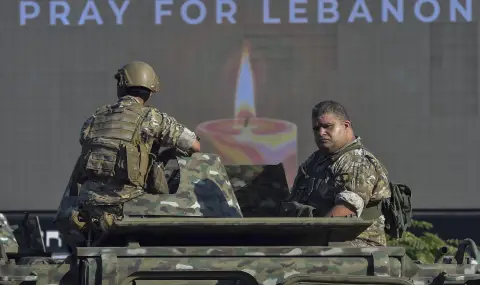The assassination of Hassan Nasrallah represents the most serious escalation of the clashes between Israel and Hezbollah in recent months. Israel is waging a "dirty war" against Lebanon, the country's Prime Minister Najib Mikati said during an emergency meeting of the UN Security Council last week. Israel is responsible for the unprecedented escalation in Lebanon and has killed hundreds of civilians in just a few days, "including young people, women and children," Mikati said. Beirut is counting on the French-US plan, which enjoys international support, to end the "war". Israel rejects this plan.
The chronic weakness of the Lebanese government
Lebanon's prime minister's speech demonstrated that the country's government is largely powerless in the conflict between Israel and Hezbollah. And it has no bearing on the actions of Israel or Hezbollah. Once again, and in a particularly dramatic way, these days the chronic weakness of the Lebanese government and the Lebanese state became apparent.
The weakness of Lebanese institutions has a long history. "Lebanon was founded at the beginning of the 20th century as a state of Maronite Christians under the tutelage of French forces," says Markus Schneider from the office of the "Friedrich Ebert" foundation. in Beirut. "The inherent defect was that from the beginning the state included large areas of non-Maronite population. Confessionalism was ultimately a compromise to integrate the rest of the population. However, he prevented the development of a strong nation-state."
The civil war in Lebanon that broke out in 1975 reinforced this confessional structure. The war pitted the country's three largest religious groups against each other - Shiites, Sunnis and Maronite Christians.
Weak state, strong Hezbollah
After the end of the war in 1990, a balanced confessional system was introduced to represent the interests of individual groups. "However, this system has resulted in these groups constantly trying to assert their own interests at the expense of others," says Schneider. "This continued to weaken the state. And it can be seen, for example, in the fact that from 2022 onwards, the state cannot elect a president." Rampant corruption is also linked to the division. "If there is no strong state to take action against the centrifugal forces in its own country and its own institutions, it is easy to create an oligarchic system in which everyone serves themselves," adds the expert.
In addition, Lebanese society suffers from the activities of Hezbollah, an organization declared a terrorist organization by Germany, the United States and many Sunni countries in the region. Ever since its creation in 1982 during the civil war, it has been supported by Iran, primarily militarily. In 2022, the American center "Wilson" described Hezbollah's armed wing as "the most dangerous non-state military actor in the Middle East and possibly the world".
Hezbollah began increasingly shelling Israel after the start of the Gaza war last fall, without seeking any coordination with the rest of the Lebanese population. "Basically, Hezbollah has taken Lebanese politics hostage," says Middle East expert Kelly Petillo of the European Council on Foreign Policy.
The Lebanese army cannot stop Hezbollah
The weakness of the Lebanese state can also be seen in the passivity of the armed forces. Based on UN Security Council Resolution 1701, the army is working together with UN peacekeeping forces in southern Lebanon. Both armies include 15,000 soldiers each.
The presence of the troops is related to the war in Lebanon since 2006: then Israel occupied positions in the southern part of Lebanon. If Israeli units ever withdraw, the two armies must ensure that they work together so that no armed Lebanese militia can take over the positions - only troops authorized by the Lebanese government must be present. However, Hezbollah does not comply with this agreement and continues its activities in the area.
The Lebanese army is weak - in the ranking of the Global Firepower Index, which measures the strength of national armies, the Lebanese armed forces are in 118th place out of 145 countries. The Israeli army is in 17th place. This means that the Lebanese army is unlikely to be able to contain Hezbollah. "This would plunge Lebanon into a civil war," commented Markus Schneider.
However, the biggest problem facing the Lebanese army is political. The military is considered one of the few non-religious institutions in the country, Schneider says. "But it was weakened by the national and economic crisis, which is why it is under financial dependence. The main concern is that the collapse of the army could lead to the collapse of the Lebanese state itself. However, the army cannot solve the country's political problems."
Author: Kersten Knipp
